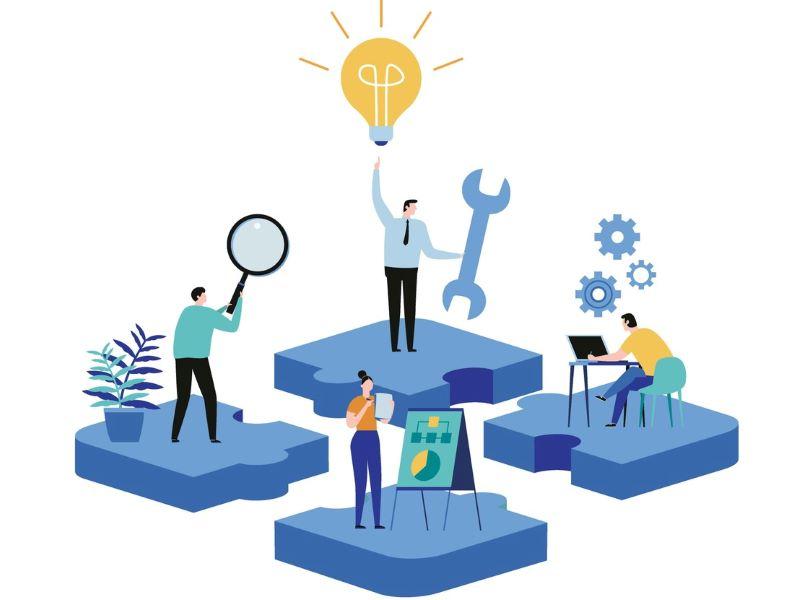
Teach the skills required for a future we can’t yet imagine
Times are changing too quickly for any of us to accurately predict what the future employment market will look like. But we can still prepare our students. Hajer N. Sheikh advocates for a more agile approach
You may also like
We’re living through a fourth industrial revolution, characterised by technological advancements in areas such as robotics, artificial intelligence and machine learning. While this inspires hope in future prosperity, the pace of invention means we can’t even imagine what jobs will make up most of the workforce in a generation from now.
- Engaging students with careers resources early and often
- Struggle, strength and growth: preparing students for the changing future
- Preparing students for an uncertain future through career planning
About 65 per cent of current primary school pupils will be employed in jobs that don’t exist today, according to one estimate. In such a disruptive employment market, we must understand why this is happening and how we can equip our students to be future-ready.
A skill set for the future
Organisations such as The World Economic Forum, the Partnership for 21st Century Skills and ADSW: Future Skills 2030 have outlined what the skills required by the job market in the next five years will be. They include:
- Creative thinking
- Analytical thinking
- Technological literacy
- Curiosity and lifelong learning
- Resilience, flexibility, and agility
- Systems thinking: viewing entities as a connected, mutually interacting parts of a larger whole
- AI and big data: working with sets of information that are too large or too complex to handle, analyse or use with standard methods
- Motivation and self-awareness
- Leadership
- Empathy
They’re sometimes referred to as soft skills, or non-technical skills or transferable skills, since they can be applied to practically every professional field.
Concentrate on the crucial skills
What are the two key features of this new employment landscape? Automation and rapid pace of change.
If we must choose a few crucial skills to mitigate the negative consequences of these two things from the list, for me, it would be lifelong learning and resilience. I propose that these two skills be added as a prerequisite for graduation from every institution.
It’s better to choose fewer skills and teach deeply and thoroughly rather than set out to teach too many skills and end up either overloading students with work or only covering skills superficially.
Lifelong learning
We cannot teach all possible skills that will be needed in future. However, if our students are open to learning the new skills required for emerging jobs, they’ll be stepping out into the world of work on the front foot.
Lifelong learning requires developing talent or skills in an area you haven’t necessarily encountered yet. Sometimes it even requires unlearning what we have been taught all our life, and then relearning new skills, or sometimes it means learning from junior colleagues.
Let’s take the example of the genetic counsellor. This job did not exist 10 years ago, and no higher education institution prepared students specifically for this role. So what does that mean for graduates who want to work in this field? Technical knowledge learned at university level will never become redundant. A graduate knowledgeable in genetics, who can self-learn the skills of counselling, the skill of empathising with the parents of children with genetic diseases, and who can convert medical jargon into simple language to explain to clients about genetic screening, will always be needed in this field.
As we can see in this example, self-learning can prepare a graduate for emerging jobs. So how do we teach this skill? Build your curriculum around these topics:
- the science of neuroplasticity
- growth mindset
- steps for self-directed learning
- how to master a new skill
- how to adjust to being outside comfort zone
- repetition frequencies for learning
- using multiple senses for learning
- how to assess ourselves on conceptual learning
Most importantly, build time into the curriculum to allow for students’ self-directed learning of the core topics of the syllabus and the exchange of feedback on their self-learning process.
We have to train our next generation to live with the mindset of a perpetual student. One analogy to help us understand the value of this skill is that life flows in our blood, and our blood cells are renewed every 120 days. Life is about renewing ourselves constantly.
Cultivating resilience
Resilience has been an indispensable trait throughout human history. However, it will become even more critical in the future.
The pace of change is now more rapid compared with the pre-digital era. The fourth industrial revolution is defined by the exponential speed of new developments. Inevitably, this will result in fewer jobs for workers, as tasks increasingly become automated.
More people will experience periods of unemployment in their careers, affecting their mental health. To combat this, we have to teach students how to deal with change, how to handle anxiety, and how to take care of their mental health. Topics such as cognitive behavioural therapy training, anecdotal stories of resilience and a holistic (spiritual, mental, physical social, family) approach to life rather than a dogged focus on career, and how to channel negative experiences into positive opportunities for success must all form a solid foundation for our students to build upon.
Should we be scared as to what the future holds for employment? I don’t think so. Technical knowledge taught in schools and colleges will never be redundant – it only needs to be supplemented by a few soft skills to make our graduates relevant in a changing workplace.
Hajer N. Sheikh is lecturer in biomedical sciences and head of learning resources at Dubai Medical College for Girls.
If you would like advice and insight from academics and university staff delivered direct to your inbox each week, sign up for the THE Campus newsletter.




